Blue Economy and Climate Action Pathways Kickoff
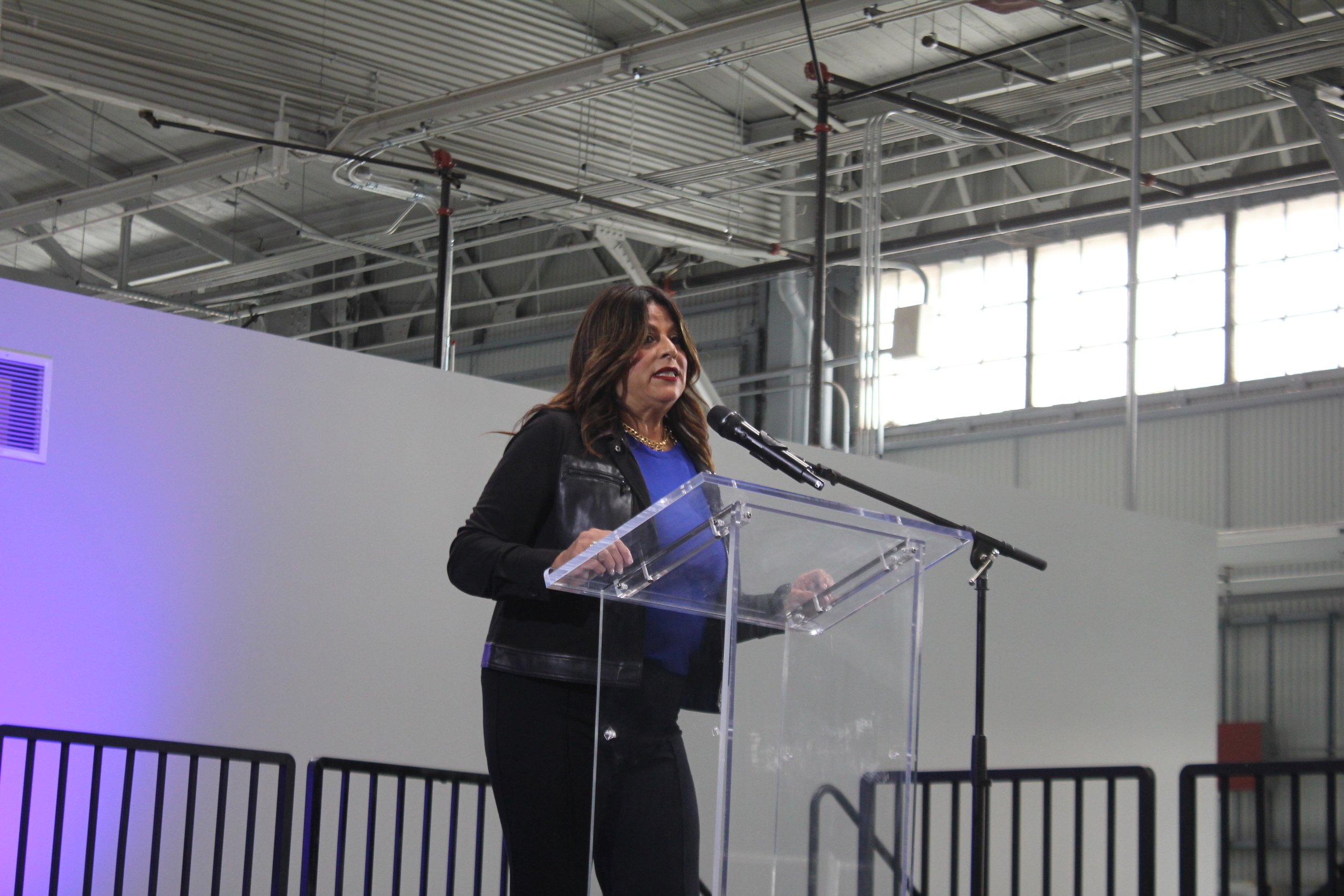
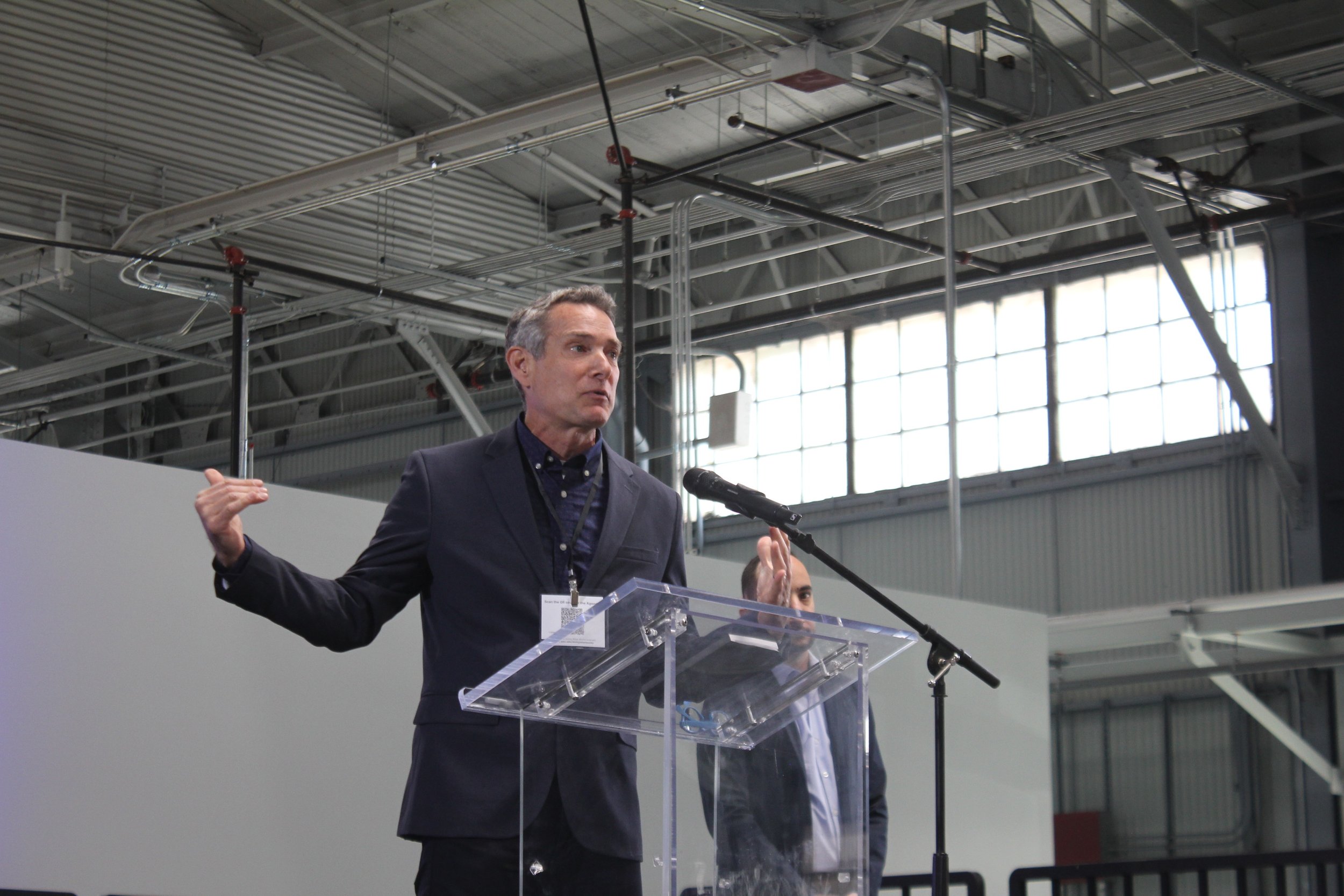
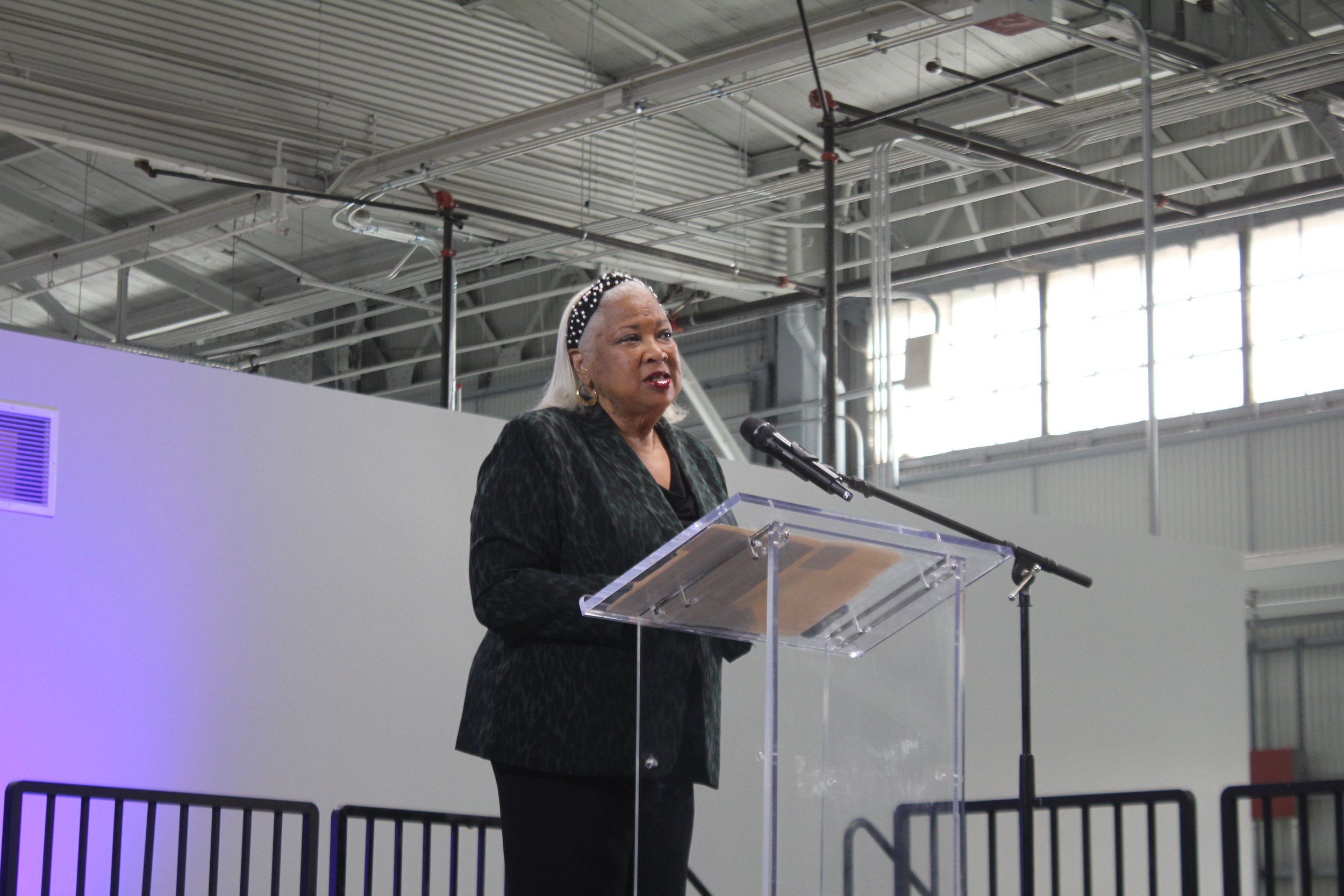
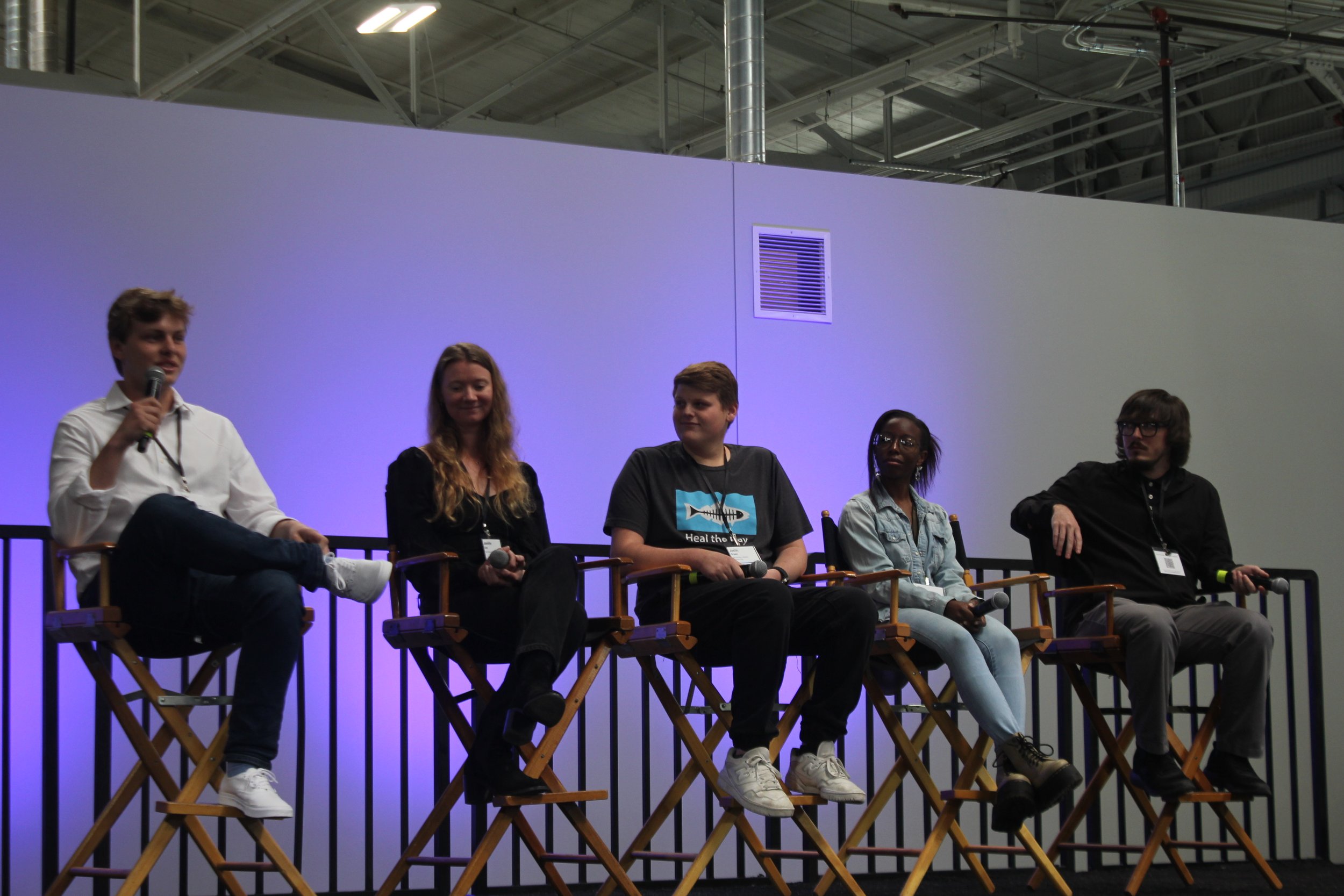
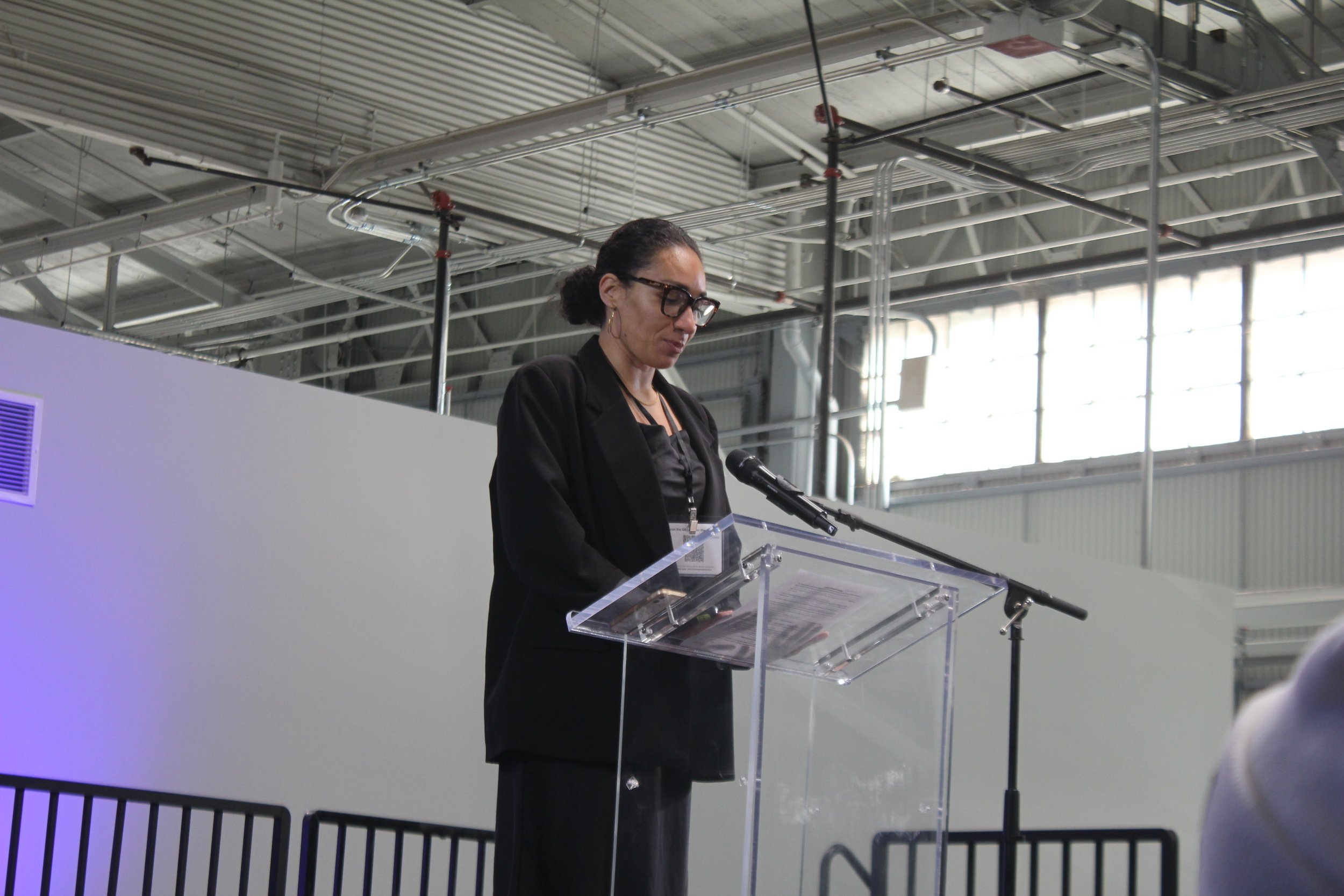
Spearheaded by Santa Monica College (SMC), 13 California Community Colleges (CCC) have partnered with AltaSea to create the Blue Economy and Climate Action Pathways (BECAP) certification program.
On Friday, April 19, SMC hosted the official BECAP Conference and Kickoff at the AltaSea warehouses at the Los Angeles Port in San Pedro.
AltaSea is a company focused on creating an environment that fosters scientific collaboration, job creation, equity, and sustainability through the blue economy. The blue economy is a term used to describe economic advancement and opportunities centered around ocean and sea conservation and sustainable development.
BECAP is a collaboration between the following CCCs: Santa Monica College, Los Angeles Harbor College, West Los Angeles College, East Los Angeles College, Long Beach City College, Citrus College, Los Angeles Valley College, Los Angeles Mission College, Mt. San Antonio College, Los Angeles Pierce College, Pasadena City College, and Rio Hondo College.
BECAP’s mission is to create a career-focused pathway and certificate for CCC students, leading them toward opportunities in the emerging blue economy field.
The conference was primarily filled by community college faculty, deans, and blue economy industry experts, including a few students who formed a panel.
Laura Rink conducted the student panel, SMC’s Introduction to Aquaculture professor, and Heal the Bay Aquarium's Associate Director of Operations. The panel was made up of four SMC students taking Intro to Aquaculture: Ariana Kidd, Sean Moulin-Cortes, Jennifer Cole, Max Riley, and one Santa Monica High School student, Justin Greene.
All of the SMC students shared that after taking the class with Rink, they have become more interested in pursuing careers related to aquaculture or environmental activism.
Cole, an Environmental Science major, was particularly inspired by the chance to make an active change, especially in a world where it feels like students have little control over making real change. “It’s time that we look for hope,” said Cole regarding the future of climate change.
Kidd, a Marine Biology and Sustainability major, is focused on community wellbeing just as much as she is focused on sustainability. “What can I do to not just feed myself better, but also feed my community better?” said Kidd, in regards to ethically sourcing food through the blue economy.
Student feedback, from both community college and high school students, is essential to progressing the blue economy’s presence in education according to Dr. Patricia Ramos, SMC’s Dean of Academic Affairs and member of AltaSea’s Board of Trustees. She wants the pathway to be relevant and useful for students.
Ramos and Dr. Steven Sedky, SMC’s Interim Associate Dean of Career Education, are at the forefront of SMC’s BECAP project. Ramos and Sedky have worked side by side for four years to implement the BECAP. Ramos hopes it will be a curriculum that inspires students to get into the work field as quickly as possible.
According to Dr. Jade Clemons, AltaSea’s Director of the Blue Sustainability Economy Alliance, the blue economy’s core surrounds three main focus clusters: regenerative farming, renewable energy, and BlueTech (underwater robotics). Clemons said she wants this partnership between colleges and AltaSea to create lab space and internship opportunities for students invested in the field.
Ramos said she doesn’t want students to be limited to California jobs or jobs at AltaSea. She sees BECAP as an opportunity for students to work in the U.S. Department of Energy and Agriculture.
As much as BECAP will affect students, it is already affecting professors and faculty. A change in curriculum will change how professors teach their classes.
The fields most affected by the new curriculum are Ocean Technology, Marine Technology, Diving and Underwater Safety, Oceanography, Environmental Technology, Electro-Mechanical Technology, Small Businesses and Entrepreneurship, Welding Technology, Energy Systems Technology, Geographic Information Systems, and Alternative Fuels and Advanced Transportation Technology.
Faculty will have to adapt to the addition of three classes that the BECAP certification will require: Aquaculture Microbiology, Genetics, and Larval Spawning and Rearing.
“My office supports the faculty in this development,” said Ramos.
Ferris Kawar, SMC’s Director of Sustainability, is one of the faculty members working closely with Ramos and Sedky.
Kawar said that the expansion of the blue economy will include the use of offshore wind farms, wave energy, and hydrogen energy from the ocean.
He hopes to see a general education credit for community colleges that aligns with BECAP ideals. He said this wouldn't be possible without the push of students wanting a climate change class.
According to Kawar, students will need to go to faculty and administrators in support of making a climate change general education class. The procedure would look similar to that of Ethnic Studies becoming a general education class.
“It starts today,” said Ramos, regarding the implementation of BECAP.



